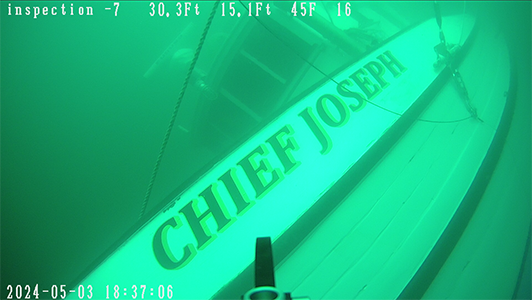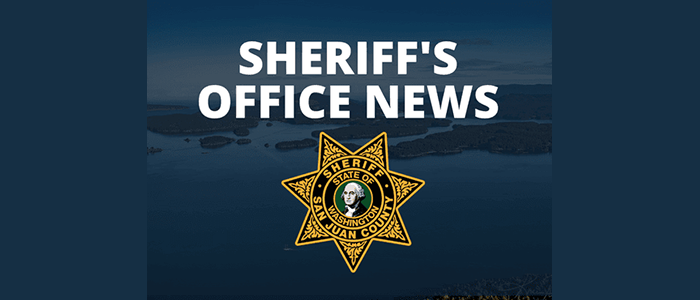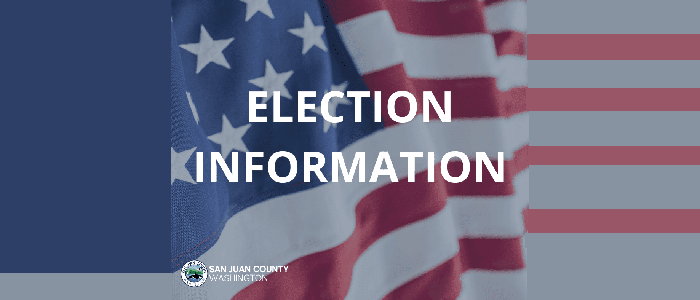— by Minor Lile, Orcas Issues reporter —

There is no question that we are living through a time of great upheaval and disarray. It is a time when the necessity for change is being thrust upon us in profound and often heart-wrenching ways. This is true on a local, national, and global level.
Here at home, these dynamics have a local character rooted in the particular history, economy and culture of the San Juan Islands. Even so, our local experience is also a reflection of what is happening in the wider world. In this sense, there can be little argument that our island community is also being shaken and tested.
In a certain sense, we have been provided with both the obligation and the opportunity to reinvent ourselves in ways both fundamental and necessary. In times such as these, it can be valuable to take a moment and step back from the day to day flow of events and reflect on the larger trends and underlying conditions that are also present. In this regard, a recent report from the American Academy of Arts and Sciences is particularly timely.
The Academy of Arts and Sciences was founded in Cambridge, Massachusetts in 1780, by John Adams, John Hancock, and other founding fathers. Benjamin Franklin and George Washington were early members of the Academy.
Earlier this month, the Academy issued a report titled, “Our Common Purpose: Reinventing American Democracy for the 21st Century.” The report identifies six strategies and offers 31 recommendations that are intended to ‘increase citizen’s capacity to engage in their communities, counter rising threats to democratic self-government and rebuild trust in political institutions.’
The 74-page report is the outcome of a process that began in 2018, when a Commission on the Practice of Democratic Citizenship was formed. The Commission is composed of 35 members from across the political, economic, and social spectrum.
Seattle-based educator and author Eric Liu serves as one of the three co-chairs of the Commission. Liu is the CEO and founder of Citizens University and the co-author (with Orcas Islander Nick Hanauer) of two books on American politics. In addition to meeting among themselves, the Commission organized nearly 50 listening sessions in 22 different localities around the country.
The report was recently the focus of a PBS News Hour segment:
The report begins by stating that ‘a healthy democracy depends on a virtuous cycle’ of continual renewal and reformation that is based on an understanding of citizenship ‘that extends beyond legal status to express a broader ethical conception of engagement in community and contribution to the greater good.’ This premise is rooted in the idea that the Declaration of Independence and the Constitution are living documents that are ‘adaptable to new circumstances and unanticipated challenges’.
The challenges that the report seeks to address include obstacles to voting, dysfunctional governmental institutions, a disrupted media environment, fragmented civil society, and a consequential lack of shared commitment to constitutional democracy. Economic inequality and the destabilizing role of money in politics are identified as ‘central contextual factors’ that have shaped and formed the Commission’s recommendations. The report also incorporates the presence of the Coronovirus into its findings.
The strategies and recommendations address governance and community involvement at federal, state, and local levels. Many of the recommendations build on models that have already been implemented in states and localities around the country. Despite the widely differing perspectives of individual Commission members, the recommendations provided in the report were adopted unanimously.
At the local level, a key recommendation is for governments to adopt formats and technologies that will encourage more widespread participation in public hearings and meetings of local officials. On this recommendation, the Commission points to the improved ability to access public meetings online that has been driven by open public meeting guidelines and the social distancing measures induced by the Covid-19 epidemic.
Anyone in San Juan County who has participated in any kind of meeting – public or private – over the last few months now has an experience of online meeting spaces. The technology, as well as the customs and practices that are relevant to meeting online, are not yet perfected. How many times, for example, have we heard the reminder to ‘please remember to mute and unmute your microphone’? Nevertheless, here in the San Juans, the ability to attend a County Council and other public meetings online or over the phone has greatly increased participation by those who can listen in from work or home rather than having to make their way to the actual meeting place.
Other recommendations at the local level build on this expanded capacity for greater access and more meaningful citizen involvement at the local level. For example, in towns, cities and counties across the US, nearly 500,000 participants have taken part in allocating over $280 million in public spending through an emerging practice known as participatory budgeting.
Here on Orcas Island, the Economic Recovery and Resilience Project that is being launched under the auspices of the Orcas Island Community Foundation is an expression of the Commission’s call to generate a shared sense of common purpose through the activity of non-governmental organizations that occupy important places in the social infrastructure of the communities they serve.
At the state and national levels, the recommendations offered by the Commission include:
- expanding the size of the House of Representatives by 50 members to allow for more equitable representation,
- limiting Supreme Court terms to 18 years,
- aligning the Federal election day in November with Veterans Day to ‘ensure that voting can occur on a day that many people have off from work’,
- establishing a universal expectation of one year of national service for young people as they come of age,
- eliminating gerrymandering of legislative districts by establishing citizen redistricting commissions in all 50 States,
- tempering the rise of social media influence through mechanisms such as the FCC’s public interest mandate in ways that could strengthen support for local and regional journalism,
- and establishing a tax on digital advertising that could be used to establish a public media fund to support local and regional journalism.
The 31 recommendations are rooted in six strategies or ‘imperatives’ that the Commission report identifies. The report describes these strategies as ‘imperative’ in the sense that they have the potential to resolve the corrosive challenges that currently threaten participatory democracy.
These strategies are:
- Achieve Equality of Voice and Representation
- Empower Voters
- Ensure the Responsiveness of Political Institutions
- Dramatically Expand Civic Bridging Capacity
- Build Civic Information Architecture that Supports Common Purpose
- Inspire a Culture of Commitment to American Constitutional Democracy and One Another
The report calls for adoption of its recommendations to coincide with the 250th anniversary of the signing of the Declaration of Independence in 2026 and invites the involvement of all who are concerned about the current state of affairs. For more information, visit Our Common Purpose at the website of the American Academy of Arts and Sciences.








AAAS acknowledges and supports #ShutDownSTEM (citing AAAS CEO statement 6/09/2020). Thank you for this articulate editorial.
Wonderful, thoughtful article, Minor; timely and necessary in these times with all we are facing. Thank you so much; it gives me some hope – and thanks for the link to the report, which looks to be full of a lot of material we can work with collectively to create a more sustainable, collaborative present and future.
Thank you Minor. You make great points, great comparisons, and have great references to share.
“For more information, visit Our Common Purpose at the website of the American Academy of Arts and Sciences.”